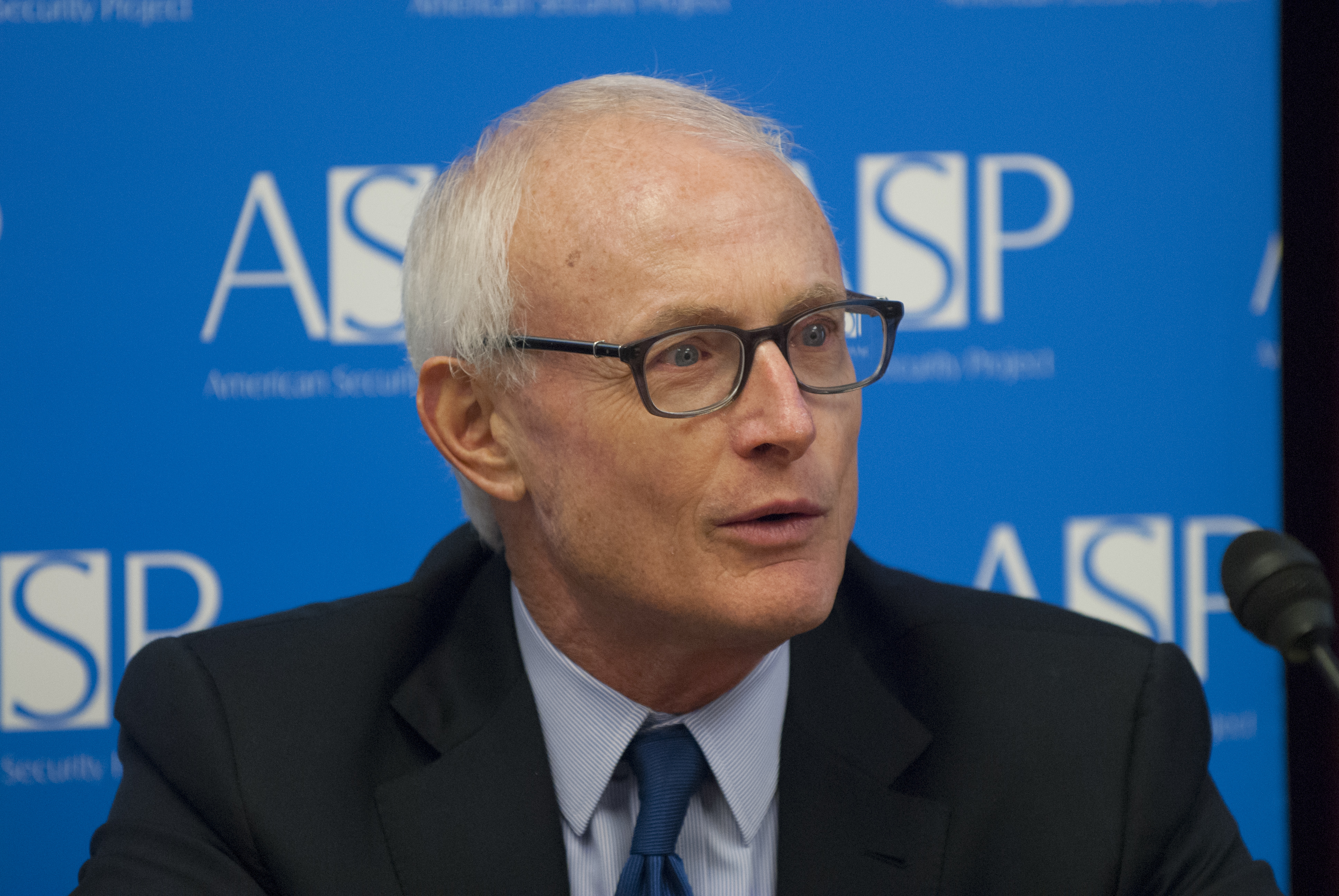
Event Review – Restoring American Competitiveness: A National Security Crisis
Podcast: Play in new window | Download
Subscribe: Apple Podcasts | RSS
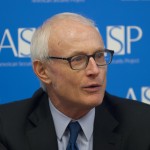
Dr. Michael E. Porter, Harvard Business School
Last November, ASP released a white paper outlining how America’s competitiveness is essential to its national security. A few months later in February, Dr. Michael Porter and Dr. Jan Rivkin of the Harvard Business School released an unrelated report with results and analysis of a survey of over 7,000 business leaders on American competitiveness. Although the two studies were done independently, they reach strikingly similar conclusions: American competitiveness is slipping, and this requires urgent attention.
Our slipping competitiveness was the subject of ASP’s panel discussion (in collaboration with the HBS Club of Washington, D.C.) on Wednesday entitled, “Restoring American Competitiveness: A National Security Crisis.”
The panel featured Dr. Porter and Dr. Rivkin, as well as Dante Disparte of the HBS Club of D.C., and ASP board members Norman Augustine and Lieutenant General John Castellaw, USMC (Ret.). The discussion was moderated by ASP CEO Brigadier General Stephen A. Cheney, USMC (Ret).
Although the experts come from varying backgrounds, from military experience to academia, their analyses of American competitiveness echoed analogous concerns.
First of all, the panel discussed how competiveness must be defined.
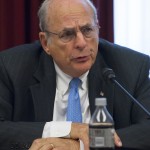
Norman Augustine stressed the importance of education and basic research
It cannot only be measured by the success of domestic businesses in the global market, but also by the quality of life for American citizens. Mr. Augustine explained that “competitiveness is an acronym for jobs,” an idea additionally espoused by Dr. Porter and Mr. Disparte. Dr. Porter emphasized that the jobs are affected are those filled by semi-skilled, middle class workers. The high-skilled workers, he noted “are going to be fine.”
The panel additionally emphasized the fact that America’s slipping competitiveness is “not just a hangover from the Great Recession,” as Dr. Rivkin explained. Instead, our global position is indicative of a structural challenge within the United States.
The problem lies in the depletion of America’s once-rich “commons,” according to Dr. Rivkin. The “commons” encompasses our crumbling infrastructure, our limiting high-skilled immigration, and our corporate tax policy, which he called “the worst of all worlds.”
Norman Augustine offered a national security perspective on the importance of American competitiveness. He outlined three ways in which diminishing competitiveness hurts our national security. First, if our economy is weak, then we cannot afford a strong military. It also means that we have no clout in the geopolitical world. Finally, if we do not remain competitive, our quality of life will decline. Mr. Augustine recommended we improve the American education system by finding “teachers who are qualified to teach” and increase investment in basic research.
Lt. General Castellaw stressed that “it’s certainly not military power alone” that determines American security. Unfortunately, American veterans, he added, are not coming home to the jobs they deserve to keep rural communities competitive. The lieutenant general emphasized that we must revitalize our small businesses and middle class jobs to “strengthen the fiber” of the United States. His recommendations to restore American competitiveness included a balanced, practical energy policy and an integrated policy approach that includes all components of American power: our military might, economic strength, and foreign diplomacy.
Mr. Dante Disparte asserted that improving American competitiveness does not have to be a zero-sum game. Our success does not have to come at the expense of other nations, but is instead an “all ships rising proposition.” He echoed the other experts’ keys to re-establish American competitiveness, with a particular emphasis fixing our corporate tax policy by repatriating income that multinationals are currently holding abroad.
Dr. Michael Porter concluded by accentuating that competitiveness is really about middle class jobs.
The corporations and high-skilled workers will remain competitive. It is those in the middle for whom policymakers and business leaders must act. Dr. Porter noted that it is nearly universally agreed that American competitiveness is slipping. What needs to get done is also not too controversial.
The “fundamental question,” Dr. Porter posed, is “how do we get things done?”
Although the current political climate makes progress challenging, the competitiveness expert is beginning to see hope.
America’s dropping global leadership is too imperative of an issue to be ignored.
American competitiveness is not only an obstacle for business, but also a threat to our national security.
With support from both business leaders and security experts, hopefully Washington can begin acting to restore American competitiveness.
To listen to the event, click below.

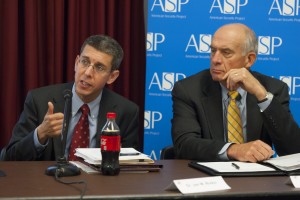
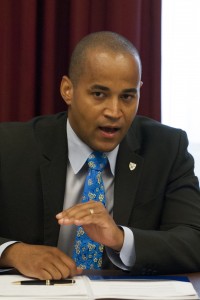
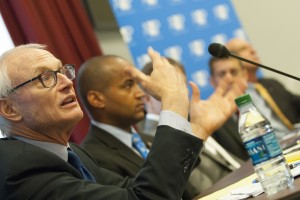






















[…] Dr. Michael Porter’s remarks at the American Security Project’s Capitol Hill Panel Restoring American Competitiveness: A National Security Crisis were quoted by The Washington Free Beacon. Principals of the HBS and ASP spoke about […]
[…] Defense Magazine recently published an article reviewing ASP’s American Competitiveness Day Panel Discussion. The article, entitled “Augustine: Decline in U.S. Competitiveness Creates Security […]
[…] Event Recap – Restoring American Competiveness: A National Security Crisis Justin Winikoff On Wednesday, ASP collaborated with the Harvard Business School for a panel discussion on slipping American Competitiveness. The panel, featuring competiveness expert Dr. Michael Porter, examined the business and national security implications of our diminishing global leadership […]
[…] here […]